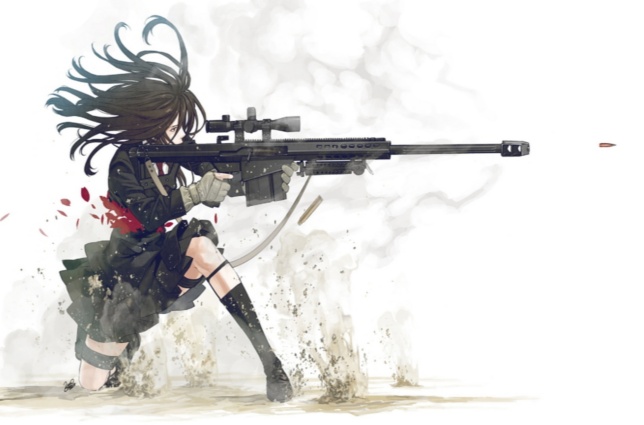

Combat is the same as the rest of system. Paper-Scissors-Rock, Higher wins.
Attacks, whether physical, magical or even social all do a single point of determination damage.
Some attacks can do an extra point of damage. Armour absorbs the first point of damage.
Weapons
Weapons give no mechanical bonus, but can add to description where appropriate. A whip may let you swing over a pit, it wont cut through a bamboo pole like a sword does. Common weapons include; katana (sword), bokken (wooden sword), tanto (knife), bo (staff), tonfa, sai, kama (sickle), naginata (reaping sword), yari (spear), nunchaku, hook sword, paper fan, etc. It even includes natural weapons such as claws, fangs, etc.
Martial Arts
Different styles of Martial Arts add description without mechanical bonus. It is just a matter of style. Common examples include; kung fu, karate, sumo, judo, akido, tae kwon do, jujitsu, mauy thai, capoeira, etc
Magic
Magical elements also add description where appropriate, but give no mechanical bonus. The magical elements are:- Wind, Earth, Fire, River, Heaven, Thunder, Void, Spirit, Forest, and Music. An attack spell from Fire does no more damage than Forest or Music. A Spirit wall is just as hard as a wall of Earth or Thunder. Fire may light up a room more easily than Music, and Thunder may deafen a foe more easily than Forest does.

These special moves can be applied to most martial arts styles, melee weapons and ranged weapons.
Blind fighting = you don't need to see your foe to hit them (not ranged)
Judge opponent = you can tell roughly how good a foe is by watching them move.
Whirlwind / Hail of bullets = you can make your normal attack an area attack (room sized).
Trick blow / Trick stroke / Trick shot = lets do tricky moves easily and without penalty. Sword catch / Barrel block = you can block melee weapons with your bare hands or gun.
Bullet catch / Bullet block = you can block bullets with your bare hands or a sword, etc
Disarm = you can strike so as to knock a foes weapon from their grasp.
Lock = you can lock a foes limb.
Pin = you can pin a foes limbs.
Sweep = you can knock a foe off their feet.
Katana space / Rifle space = You can conceal a larger weapon quite easily.
Quick draw = drawing your weapon is near instant, even if surprised.
Two swords / Two guns = You can fight with the same weapon in both hands.
Walking arsenal / Portable armoury = You have a LOT of swords, axes or guns, bows, etc.
Throw weapon / Butt-stroke = You can use a melee weapon at ranged, or vise versa.
One bullet left = The GM can say people run out of ammo. You have one last shot.
Weapons encyclopaedia = You know a LOT about different weapons.
Extra range = You can get extra range out of your weapon.
etc = anything else not covered can be suggested to GMs.
Magic is broken into four main categories. Offensive, Defensive, Support and Utility.
Offensive
Rays = weaken, blind, etc
Blasts = fireball, lightning, etc
Curses = disease, bad luck, etc
Weapon Enhancements = flame sword, wind bow, etc
Summoning = attacking creatures
Transmutations = frog, stone, etc
Defensive
Walls = stone, force, etc
Wards = binding, banish, etc
Protections = fire, undead, etc
Runes = magical triggers and traps
Summoning = defensive creatures
Healing = disease, poisons, wounds, etc
Support
Amplify voice = boosts their voice, its range and social effects
Boost = increases grade of spells
Might = strengthens or toughens target
Extend range = magic goes x10 further
Expand area effects = magic covers an area, or makes the area larger.
Lengthen duration = magic lasts x10 longer.
Increase effect = does an extra point of determination damage or equivalent.
Frog-leap = x10 jumping distance
Utility (Note: no utility spell is directly combat useful and none can do direct damage.)
A large number of flexible spells:- create light, minor illusions, minor weather effects, spider-climb, water-breathing, message sending, detect magic, find direction (if you have a token), warmth, clean, dry, grow, even activate or repair simple machines. Most of these can be reversed, but they still fail it they would cause damage.
Etc = any other spell-like effects can be suggested to GMs.